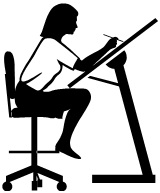Home »
Posts tagged "Estimation" (Page 4)
Especially for complex and costly IT projects, customers need to invest more in the up-front evaluation. Oh, no. Here we go again.
Continue reading »
August 11, 2011 Bruce Benson
Planning
The enormous increase in effort with very short schedules is due in large part to the work on the project morphing into wasteful activity called "optional chaos."
Continue reading »
August 9, 2011 Bruce Benson
Schedule
Only the knowledge workers know exactly what they are doing and how they are doing it. Because knowledge work is invisible, no one else, including the managers, can understand what the knowledge workers are doing or how they are doing it.
Continue reading »
July 30, 2011 Bruce Benson
Team Management
Success is an amazingly difficult notion to objectively pin down in many projects. While we need to be flexible, I've noted that there is a fine line between flexibility and chaos. Often it is but a single voice that makes all the difference.
Continue reading »
June 27, 2011 Bruce Benson
Metrics
I'm a great advocate of managing using objective, data driven, project management tools. I often call it being "brutally honest" but with the insight it is only "brutal" to organizations that have locked themselves into other than objective approaches. Here are five reasons why being objective is hard, and ways we successfully overcame these barriers.
Continue reading »
February 22, 2011 Bruce Benson
Metrics
Sometimes it is the team process and not the project requirements that determines a project's schedule.
Continue reading »
February 15, 2011 Bruce Benson
Planning
Know the history of how our organization has performed in the past.
Continue reading »
January 25, 2011 Bruce Benson
Planning
There are simple project management tools that allow us to quickly and accurately estimate projects (or tasks) even when we don't have a lot of time to make the estimate nor a lot of details on the effort.
Continue reading »
January 4, 2011 Bruce Benson
Planning
The typical misconception is that project problems are just too complex to ever be "simply the schedule."
Continue reading »
October 27, 2010 Bruce Benson
Schedule
What is not often as obvious is that a lot of the problems seen in a project can often be root caused back to an inadequate schedule estimate.
Continue reading »
October 26, 2010 Bruce Benson
Schedule
Estimating the project is one of the greatest challenges, with or without fancy project management tools, that a manager will face. Here are three areas where we've seen estimates fail and how we've avoided doing the same.
Continue reading »
September 7, 2010 Bruce Benson
Planning
I had a job interview for VP of Development. The interviewing VP with a long history in the industry asked me a simple question: Did I think software development was a repeatable process? I said yes. I won't describe the ensuing discussion except to say I didn't get the job. We didn't even get to talk about project management tools!
Continue reading »
August 23, 2010 Bruce Benson
Planning
That’s the ticket. Let’s get a great project management tool that will help us get everything done faster. We’ll complete all our projects quicker and finally deliver more of them on time! Not so fast young Jedi apprentice ....
Continue reading »
August 17, 2010 Bruce Benson
Change Management
We certainly would not sell off the fairytale Golden Goose to pay for today’s meal. We would find a way to eat today or go hungry and keep the Golden Goose until she laid that next Gold egg. Yet, too often we ignore each project management tool Golden Goose as it comes along.
Continue reading »
July 20, 2010 Bruce Benson
Change Management
There is great comfort in trying to know every detail so that we as managers can make sure everything goes right. This desire for working out all the details, using project management tools, instead often results in detail overload that obscures the most important aspects of the project. Instead, there is an often simpler approach that works surprisingly well.
Continue reading »
June 15, 2010 Bruce Benson
Planning














